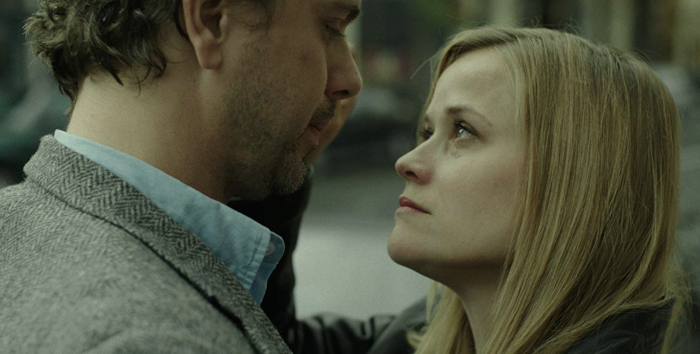Moving on is not the same as getting healthy.
I’ve confused one with the other before.
We move on from a lot of things, sometimes people, oftentimes places, and we do so for any number of reasons. Whatever they may be, a common denominator is that we are moving on from and out of a place of disempowerment. It’s certainly healthy to move on from what no longer serves or grows us. But moving on is not the equivalent of getting healthy.
I wish I had written this across my mirror, or on my passport cover.
From a young age, having been left behind by various people who were significant, I latched onto the quote, “It’s always easier to be the one leaving than the one being left.” It was both a defense mechanism and my modus operandi for over half of my life. I was the ultimate runaway.
I practiced both fight and flight, in that very order, and to make things worse, I thought I was choosing to heal when my behavior sabotaged that very goal. I hung up heated calls; I slammed doors and made quick exits; I shut down and stopped being responsive when I didn’t feel like being confrontational. When I did, I chased after closure I never received, so I pacified myself by giving up the need for closure altogether. I despised being needy. I wasn’t strong enough to wear my softness. All this made moving on an easier habit. But no one ever got healthy from a series of easy choices.
Instead of dealing with or confronting what became uncomfortable, I fled and escaped and avoided. I moved on swiftly. I followed what society and pop culture teach us to do when we’re upset and hurt. But neither society nor pop culture was ever invested in my well-being. It serves more people to keep us fragmented than it does to keep us whole. When I didn’t know better, I mistook getting healthy with moving on.
A new key, a new address, a new way to a new job, and a new guy along the way. I numbed myself with new scenery and distractions. Except for I didn’t experience this with a new heart, mindset, or slate.
I carried my pain with me, and I often coped in ways that numbed my wounds, instead of treating them. I misunderstood healing with being in a new place. I thought that if I moved away from what made me miserable, I would surely be well again. Just like that.
So I became a nomad and took pride in how much of the world I’d traveled to and seen—how some years I needed a new passport, and how not much later I applied for one with twice the amount of pages than a standard version. It still wasn’t enough. I was always searching for the next destination when the journey I truly needed to take didn’t require a passport or a visa.
Because it isn’t about how many stamps we’ve collected in our passport pages. More than anything, self-love is about getting healthy, and until we stop and take inventory of all the pain we are carrying, and truly treat all the wounds we’ve collected along the way, no spa weekends or getaways are going to reverse our self-sabotaging ways.
Moving on could certainly be a step toward healing, but the single act of moving on does not make us whole. A change of our external circumstances might bring temporary relief that accompanies a new landscape, but if we do not do the hard work of emotional reckoning or understanding the psychology behind our behaviors, in due course, we will find ourselves building the same houses, just on a different block. In due course, we will find ourselves crashing and fleeing like last time.
Motion alone will not save us, and thinking so hurts us even more. Because instead of moving toward healing, we are moving further away from it and thinking our job is done when we have only more to do and more wounds to heal.
In our increasingly connected and convenient world, our next destination, date, job, apartment, activity is often just a click or a swipe away. It’s easier than ever to move on, so how is it, and why is it, that more and more people feel unwell?
Healing doesn’t happen with a click or a swipe. It doesn’t come with a spa getaway, or any getaway that results in us being back in the same environment, carrying on with the same habits and behaviors. Coping is just coping. Dealing is just dealing. Getting healthy is neither if how you cope or deal doesn’t get you healthy.
Between staying the course and moving on, I must clarify that I don’t advocate for or romanticize one over the other. But moving on to the next distraction is no way of getting healthy.
I’m not ashamed to say that I, too, fell hard for Eat, Pray, Love, but that prescription alone didn’t save me. It wasn’t until a memoir writing workshop—with a group of perhaps the bravest women I had ever met—did I finally feel the difference between the internal and external journeys we take.
Yes, I was somewhere remote. Yes, it kind of looks like Eat, Pray, Love on the surface. But I no longer shut down, and I stayed open, and I took the journey inward further than I had ever known to be possible. “What was the world like before the world exploded?” asked Joyce Maynard, perhaps the best writing instructor for women (I can’t comment for the others). When we feel at a loss, when we feel defeated, how often do we really ask ourselves, what was the world really like before the dark clouds rolled in?
A simple but provocative question guided me not just in my writing, but in my internal journey. All of a sudden, the dots in my life seemed to connect. All of a sudden, I was brought back to my childhood, and much more innocent years.
Many psychologists say that who we are and who we become are inextricably linked to who we were as children. I have often rolled my eyes at this and was certainly one to deny it, as I thought this took away our power to change our destinies as fully grown adults. Except for our destinies won’t stray too far from the child in us, if we left the child or childhood wounds unattended. Everything catches up and catches on.
After the memoir writing workshop faraway, I returned to the same apartment, and for the first time in my life, I felt a fundamental shift in my energy and behaviors. For someone with a rich, nomadic past, this was not a by-product of travel. This was caused by the earthquakes that had happened internally. Its impact continues today.
One thing I realized when I was still in acting school was that few of us are equipped to accurately describe, express, or locate our emotions. Most people lack this vocabulary. It wasn’t until recently I realized that even fewer of us can tell you what healing or getting healthy truly means or comes from. It bears repeating: Moving on is not the equivalent of getting healthy. A change in external circumstances will not make us healthy if who we are on the inside remained the same.
Self-love and self-care have become increasingly popular buzzwords in our culture and industries, but if what was advertised had been truly effective, then there would be no place for a column like this here and now. Success that’s run on currency isn’t made to keep us whole or independent.
The best way to love ourselves is to get healthy. To make healthy choices that align with our values and empower us so that we can light up, and light up the world around us. When we do become healthy, we will realize that we actually need little to be happy. We no longer need all the distractions to keep us numb, nor do we need external validation that often misguides us onto unhealthy paths. We will start trusting our instincts more, as they become sharpened with practice. We will be able to love harder, and we will be better at receiving love, too.












Read 2 comments and reply